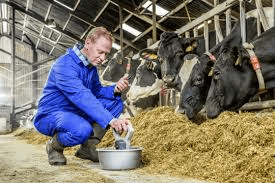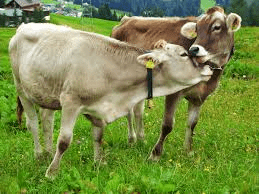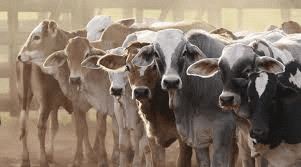Animal agriculture is a critical component of the global food system, influencing economic stability, nutritional health, and cultural practices. However, it also presents various environmental challenges that need to be addressed through sustainable practices and innovative solutions.
This article explores the environmental considerations of animal agriculture, including sustainable practices, contributions to soil health, and challenges.
It also looks at future prospects through technological advancements and changing consumer preferences.
Environmental Considerations
Animal agriculture has a significant impact on the environment. Understanding these effects helps in developing strategies to mitigate negative impacts and promote sustainability.
1. Resource Use: Animal agriculture requires substantial resources, including land, water, and feed. Producing animal-based foods often demands more land and water compared to plant-based foods. For example, raising livestock for meat generally requires larger areas of land to grow feed crops and more water for the animals’ consumption and cleaning.
2. Greenhouse Gas Emissions: Livestock production contributes to greenhouse gas emissions, particularly methane and nitrous oxide. Methane is released during digestion in ruminants like cows, while nitrous oxide is emitted from manure and fertilizer. These gases contribute to climate change and global warming.
3. Waste Management: Animal farming generates waste, including manure and urine, which can impact the environment if not managed properly. Poor waste management can lead to water pollution, soil degradation, and health hazards.
Sustainable Practices and Innovations
To minimize environmental impacts, sustainable practices and innovations are essential. These approaches aim to balance productivity with environmental stewardship.
1. Efficient Feed Use: Improving feed efficiency reduces the amount of feed required per unit of animal product, lowering resource use and waste. Innovations in feed formulations and additives can enhance nutrient absorption and reduce emissions.
2. Waste Recycling: Implementing waste recycling systems, such as anaerobic digesters, can convert manure into biogas and fertilizer. This reduces waste and provides renewable energy, contributing to a circular economy.
3. Sustainable Grazing: Practices like rotational grazing help maintain healthy pastures and reduce soil erosion. By rotating grazing areas, farmers can prevent overgrazing, improve soil health, and enhance biodiversity.
4. Precision Agriculture: Using technology to monitor and manage livestock more precisely can reduce resource use and environmental impact. Tools like GPS and sensors help optimize feeding, watering, and waste management, leading to more efficient operations.
5. Alternative Proteins: Developing alternative proteins, such as plant-based or lab-grown meat, can reduce reliance on traditional animal farming. These alternatives typically have a lower environmental footprint and offer a sustainable option for meeting protein needs.
Contributions to Soil Health and Ecosystems

Despite the challenges, animal agriculture can positively impact soil health and ecosystems when managed sustainably.
1. Nutrient Cycling: Manure from livestock provides valuable nutrients that can enhance soil fertility. Properly managed manure acts as a natural fertilizer, improving soil structure and promoting healthy plant growth.
2. Soil Aeration: Grazing animals can help aerate the soil through their natural movements. This promotes better water infiltration and root development, contributing to overall soil health.
3. Biodiversity: Integrated farming systems that combine crops and livestock can support biodiversity. Livestock can help manage weeds and pests, while diverse crop and animal systems create habitats for various species.
4. Ecosystem Services: Well-managed pastures and grazing lands provide ecosystem services such as carbon sequestration and water regulation. Healthy rangelands can absorb carbon dioxide, mitigating climate change effects.
Read Also: Which Herbs and Spices are good for you (cinnamon, paprika, etc)
Challenges and Solutions

1. Addressing Ethical Concerns: Ethical issues related to animal welfare, such as confinement and treatment, are significant concerns. Implementing humane practices, improving living conditions, and adopting welfare standards can help address these concerns and enhance animal well-being.
2. Adapting to Climate Change: Climate change affects animal agriculture through shifts in weather patterns, water availability, and feed production. Adapting practices such as adjusting grazing schedules, improving water management, and using climate-resistant crop varieties can help mitigate these effects.
3. Reducing Emissions: Strategies to reduce greenhouse gas emissions include improving feed efficiency, managing manure effectively, and adopting technologies that capture and utilize methane. These measures can help lower the carbon footprint of animal agriculture.
4. Minimizing Resource Use: Efforts to reduce resource use involve optimizing feed production, improving water use efficiency, and adopting sustainable land management practices. Innovations in farming technology and resource management can help achieve these goals.
Read Also: Hookworms: Description, Damages Caused, Control and Preventive Measures
Future Prospects

1. Technological Advancements: Technological innovations are transforming animal agriculture. Precision farming, automation, and advanced monitoring systems are improving efficiency and sustainability. Technologies like blockchain can enhance traceability and transparency in the supply chain.
2. Evolving Consumer Preferences: Consumer preferences are shifting towards sustainable and ethical products. Increasing demand for plant-based and lab-grown meat reflects a growing awareness of environmental and animal welfare issues. This trend is driving changes in the market and encouraging the development of alternative protein sources.
3. Sustainable Farming Practices: The adoption of sustainable farming practices is expected to increase. Efforts to reduce environmental impact, improve animal welfare, and enhance resource efficiency are becoming more prevalent. Certification programs and industry standards are helping guide these practices.
4. Collaborative Efforts: Collaboration between farmers, researchers, policymakers, and consumers is crucial for advancing sustainability in animal agriculture. Partnerships and initiatives that focus on research, education, and policy development will play a key role in addressing environmental challenges and promoting best practices.
Conclusion
Animal agriculture is an essential part of our food system, with significant economic, nutritional, and cultural impacts. However, it also poses environmental challenges that need to be addressed through sustainable practices and innovations. By focusing on efficient resource use, waste management, and ethical considerations, the industry can reduce its environmental footprint and contribute to a more sustainable future.
Technological advancements and evolving consumer preferences are shaping the future of animal agriculture, driving improvements in sustainability and efficiency. Understanding and addressing these factors will help ensure that animal agriculture continues to play a positive role in society while minimizing its environmental impact.
Read Also: Hydroponics Guide 101: All You Need to Know About it
Frequently Asked Questions
We will update this section soon.
